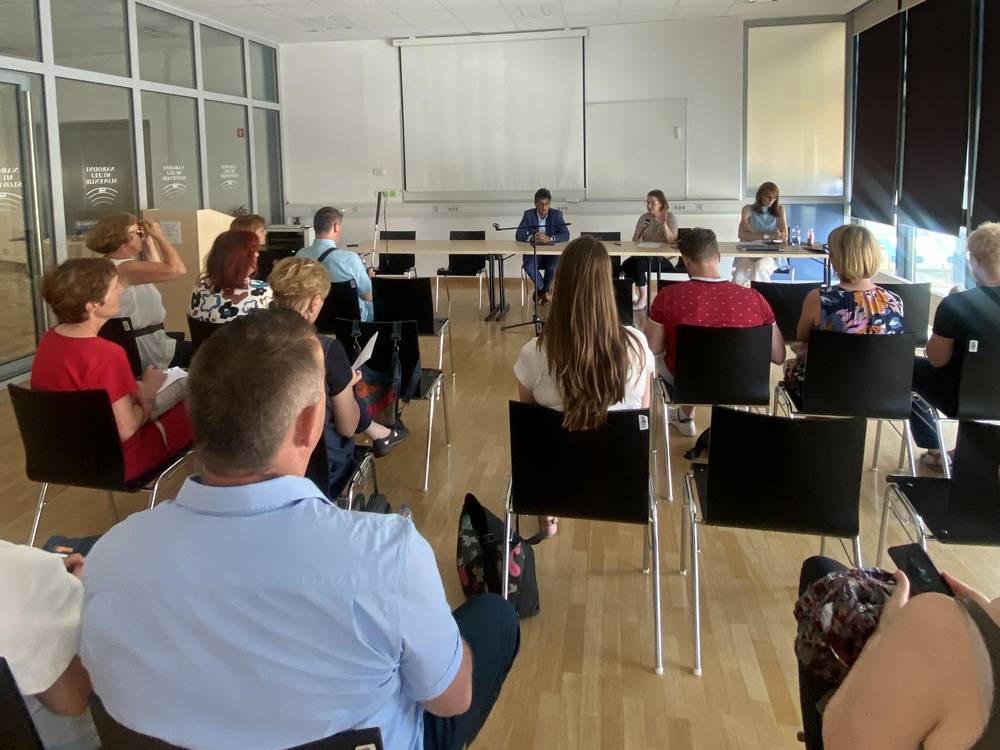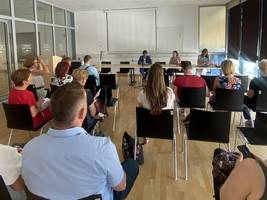On 22 June 2023, Human Rights Ombudsman Peter Svetina participated at a round table discussion entitled Izgubljeni 19.a člen ali Zakaj se invalidom odvzemajo pravice (Lost Article 19a or why are rights taken away from people with disabilities) organised by the Gibanje Nediskriminacija movement.
In his introductory address, Ombudsman Svetina emphasised that four years ago with the Personal Assistance Act Slovenia made an important step towards more active inclusion of people with disabilities in society. “Unfortunately, it did not take long before we at the Ombudsman’s office started receiving numerous complaints pertaining primarily to non-recognition of certain costs and lengthy decision-making procedures at the second instance as well as to reducing the scope of the already recognised right to personal assistance based on Article 9 of the Personal Assistance Act without the possibility of using a legal remedy,” said Svetina.
He added that with the system of personal assistance the state has established a standard that cannot now be ruined and lowered. “Moves are happening in the field of personal assistance of which I and the institution of the Ombudsman are not informed. We have asked the competent Ministry of Labour, Family, Social Affairs and Equal Opportunities for a timeline for the adoption of the law, its rough content, and ideas within which the working group is searching for solutions. We have not received the answers and the act proposal,” highlighted the Ombudsman.
The Ombudsman expects that after the completed legislative reform a system will be established that will provide all individuals with comparable needs comparable forms of help and will be completely assembled from the Long-Term Care Act and the Personal Assistance Act. These two acts together have to ensure that individuals do not have their rights violated. “I have several times warned against the problem of ambiguity of the criteria and meeting the criteria for personal assistance, as it is, or is not, evident from the decisions and appended expert opinions. A person cannot make an effective challenge by legal means since they do not know where their positions differ from those of the experts. I am satisfied that the re-evaluation procedures of the entitlement to personal assistance were stopped, but shortly before the suspension, a list of the names of all those who were directed to the re-evaluation process in the first round was created. The biggest problem is that such a list was made in the first place, and that it was made due to costs which exceeded expectations. We at the Ombudsman’s office dealt profoundly with the question of how and, above all, why the list was made, but unfortunately did not get any answers,” explained Ombudsman Svetina.
Two crucial questions we should be asking ourselves are what is the purpose of personal assistance and what it strives to achieve. A comprehensive treatment is needed in the fields of personal assistance, long-term care, and people with disabilities. “We have to be especially alert about those people who need constant and demanding treatments and do not meet the criteria for different rights that would enable their stay at their own home, while social care institutions have a problem with admitting individuals with specific medical requirements. The system must ensure that nobody is left behind in the end or that the solution of the problem is not pushed to hospital treatment since it is not really needed, while on the other hand it is not received by somebody who does need it,” concluded Ombudsman Svetina.

